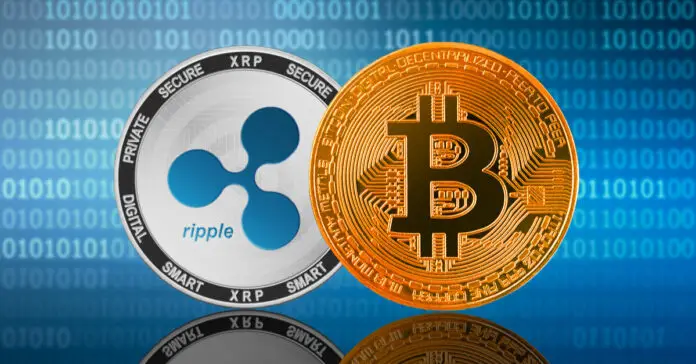Understanding Ripple and Bitcoin
Introduction
Cryptocurrency has become a hot topic in recent years, with Bitcoin being the most well-known and widely used. However, there is a new player in the game that threatens to usurp Bitcoin’s place as the top cryptocurrency – Ripple. In this article, we will explore the differences between Ripple and Bitcoin, the advantages of Ripple over Bitcoin, the challenges facing Ripple, and the future of both cryptocurrencies in the market.
Understanding Ripple and Bitcoin
Bitcoin was created in 2009 as a decentralized digital currency. It uses a blockchain network to verify transactions and maintain a public ledger. Ripple, on the other hand, was created in 2012 as a payment protocol and digital currency. It uses a different technology called the Ripple Protocol Consensus Algorithm (RPCA) to verify transactions and maintain a public ledger.
Differences between Ripple and Bitcoin
One of the main differences between Ripple and Bitcoin is their intended use. Bitcoin was created as a currency and is used for buying and selling goods and services. Ripple, on the other hand, was created as a payment protocol and is primarily used by banks and financial institutions for cross-border payments.
Another difference is the transaction speed. Bitcoin transactions can take up to 10 minutes to be confirmed, while Ripple transactions are confirmed almost instantly, usually within 4 seconds.
Advantages of Ripple over Bitcoin
Ripple has several advantages over Bitcoin. One of the biggest advantages is its speed. As mentioned earlier, Ripple transactions are confirmed almost instantly, making it ideal for cross-border payments. Another advantage is its scalability. Unlike Bitcoin, which has a limited number of coins (21 million), Ripple has 100 billion coins, making it more scalable for larger transactions.

Ripple also has lower transaction fees than Bitcoin. While Bitcoin fees can sometimes be as high as $50, Ripple fees are typically less than a penny per transaction.
Challenges facing Ripple
One of the biggest challenges facing Ripple is its association with centralized financial institutions. Many cryptocurrency enthusiasts believe in the decentralized nature of cryptocurrencies and see Ripple’s association with banks as a negative. Another challenge is its relatively low adoption rate compared to Bitcoin.
Future of Ripple and Bitcoin in the cryptocurrency market
While Bitcoin is currently the top cryptocurrency, Ripple’s advantages in speed, scalability, and lower transaction fees make it a strong contender. It is possible that Ripple could eventually overtake Bitcoin as the top cryptocurrency in the market. However, Bitcoin has a strong user base and is more widely accepted, so it is unlikely to disappear anytime soon.
Conclusion
In conclusion, Ripple is a serious contender in the cryptocurrency market and has several advantages over Bitcoin. However, it still faces challenges, including its association with centralized financial institutions and its relatively low adoption rate. Only time will tell if Ripple will be able to usurp Bitcoin’s place as the top cryptocurrency in the market.





